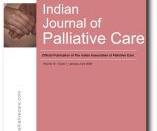This assignment is aimed at examining my interpretive skills and identifying implications for future practice based upon my findings. The case studies I have chosen are ones that have impacted on my career in palliative care. Reflecting on the main issues within them I will be able to show how these have influenced my education and in turn my upcoming practice.
CASE STUDY ONEBetty is a 72 year old lady who lives with Dennis, her husband of almost 50 years. They have one daughter who lives close by and three grand children. Betty was diagnosed two months ago as having lung cancer which had already metastasised into her adrenal glands. After much deliberation and discussion with the Oncologist, G.P. and family, Betty decided she did not want to pursue chemotherapy treatment and wanted to spend the time she had left as quality time with her family. At this point her G.P.
referred her through to the Community Palliative Care Team.
I was paged by Dennis one evening as Betty was feeling nauseas. On arrival at their home Betty appeared quite distressed and emotional. After I had administered anti emetics to stem the nausea Betty was still very emotional. There was obviously something more than her physical illness contributing to Betty's nausea and I used the opportunity to offer her the chance to talk. Spiritual care is an extremely important aspect of a patient's care and this can be derived from communication and listening to the patient without prejudice as Watson, Lucas, Hoy and Back (2005) reveal. Betty divulged that she feared dying at home as she felt Dennis would no longer live there with the constant reminder of her dying there. At this Betty requested hospital admission. It is a patients' choice where they choose to die and it...


